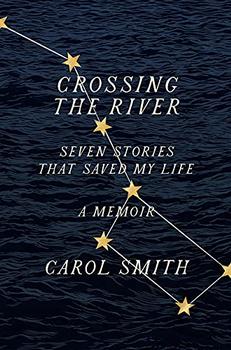Summary | Excerpt | Reviews | Beyond the book | Read-Alikes | Genres & Themes | Author Bio

Essays
by Jon MooallemIn Serious Face, journalist and author Jon Mooallem compiles essays he's published elsewhere over the past decade. While there's no central topic, the pieces converge in the questions they ask about resilience, community and the pursuit of dreams. Whether he's writing about a rogue monkey, a long-dead matador or wildfires, the author brings his vast curiosity and humility to each one.
Many essays concern people who had near-death experiences and now struggle to balance gratitude for their lives with the lingering aftereffects of trauma. In the first piece, "A House at the End of the World," Mooallem meets BJ Miller, a palliative care doctor who is a triple amputee (see Beyond the Book). He also interviews survivors of the Paradise Camp Fire, praising their survival while recognizing that they will always be recovering from their ordeal. One essay features a man called "Lucky" because he's had so many close calls — a nickname that belies the trauma of his combat experiences. Mooallem also observes how people joke about hard experiences to dispel their gravity. As a trauma survivor with chronic pain, I found myself nodding in recognition due to the awkward jokes I make about myself and the feigned optimism I encounter from others.
Two of the essays made me rethink my perspective on conservation efforts. The first deals with preservation of monk seals in Hawaii. Initially, I sided with the conservationists. But, as Mooallem explains, the monk seal protection ordinances can also seem an awful lot like federal meddling. The people of Hawaii, especially the fishermen, are tasked with adapting to measures for the protection of one species after another — more protection than the Indigenous people of the island have received. Furthermore, the seals scare off the fish that fishermen depend on for their livelihood. Similarly, in "Swing State," a renegade macaque monkey escapes from its pack and proves too quick to be caught. The monkey wins over area residents who don't want it captured, even to be humanely returned to its colony. Yet, the monkey is losing survival skills the longer people feed it and fight to keep it "free." In both essays, I had to rethink my instinctual responses to see things from another perspective.
Mooallem is clearly drawn to people who have quirky passion projects, especially when they get success. "A Cloud Society" is the tale of Gavin Pretor-Pinney, whose own love of clouds inspired the creation of an international cloud lovers' association. The essay ends with Mooallem experiencing a deep connection with others at one of the organization's gatherings. He describes a woman singing Joni Mitchell's "Both Sides Now" (because of the cloud references in the lyrics) and people sobbing all around.
As an arts journalist myself, I loved "The Story About Charlie Kaufman Has Changed." I remember the early days of the pandemic when we all felt vulnerable and isolated. I called musicians for interviews that ran quadruple their usual length. Mooallem's story about Kaufman, a screenwriter and director, is similar. The two can't meet because of COVID-19, so they have long weekly phone calls instead. The story, then, becomes about the power of connection during a time of social distancing. My only disappointment is that none of these essays were about women.
Over and over, Mooallem experiences a profound sense of interconnection. "This Is My Serious Face" opens with the coincidence of the author's friends showing him a photo of a bullfighter named Manolete that looks just like him. The matador was known for being ugly. Rather than taking offense, Mooallem immerses himself in the history of Manolete, a stoic bullfighter who refused to indulge in the sex-and-booze-soaked lifestyle of many of his peers. This research causes Mooallem to reflect on what it's like to wear his own face, how people often think it was damaged in an accident because of its structure. ("Mostly, they want to know why it's so conspicuously crooked, to hear the story of the presumably outlandish accident that fractured my large, bumpy nose in one direction and wrenched my long jaw in the other so that, no matter which way I incline my head, it never quite feels like I'm looking straight at you," he writes.) The bond he feels with the long-deceased bullfighter is the same as the one he finds with an Oscar-winning screenwriter, or the neanderthals he studies. After attending the cloud convention, Mooallem sends an email that he admits sounds "fluffy and stoned" to his friend about how all human beings, like clouds, "are expressions of the same currents." In Serious Face, he consistently finds new ways to articulate that, and it's a joy to read every time.
![]() This review
first ran in the July 13, 2022
issue of BookBrowse Recommends.
This review
first ran in the July 13, 2022
issue of BookBrowse Recommends.

If you liked Serious Face, try these:

by Edgar Gomez
Published 2025
A darkly comic memoir-in-essays about the scam of the American Dream and doing whatever it takes to survive in the Sunshine State—from the award-winning author of High-Risk Homosexual.

by Carol Smith
Published 2022
A powerful exploration of grief following the death of the author's son that combines memoir, reportage, and lessons in how to heal.
Your guide toexceptional books
BookBrowse seeks out and recommends the best in contemporary fiction and nonfiction—books that not only engage and entertain but also deepen our understanding of ourselves and the world around us.